
Every year on June 8, World Ocean Day offers an opportunity to celebrate the ocean and highlight the importance of conserving healthy oceans, seas, and marine resources for sustainable development. The ISC, as a dedicated advocate of the UN Decade of Ocean Science, is committed to advancing ocean science in support of global sustainability.
This year, World Ocean Day is preceded by the 4th International Conference on Small Island Developing States (SIDS4) which took place from 27 to 30 May 2024 in Antigua and Barbuda under the theme “Charting the Course Towards Resilient Prosperity”. The conference assessed the ability of SIDS to achieve sustainable development and resulted in the adoption of the Antigua and Barbuda Agenda for SIDS: A Renewed Declaration for Resilient Prosperity (ABAS) which calls for sustainable ocean-based economies in SIDS.
The term “Large Ocean States” is used to refer to Small Island Developing States (SIDS) to emphasize their extensive maritime zones and the significant role the ocean plays in their economies, cultures, and environments. These nations, despite their small land areas, possess vast exclusive economic zones (EEZs) that can extend up to 200 miles from their coasts. This grants them rights over large oceanic areas, making their maritime domains much larger than their land territories – on average, the ocean under their control is 28 times the island’s land mass. This large maritime jurisdiction allows them significant influence over marine resources and ocean management.
Many SIDS are economically dependent on the ocean, with key industries such as fisheries, tourism, and shipping relying on healthy and productive marine ecosystems. The ocean is also central to their cultural heritage, with many traditions, customs, and livelihoods intricately linked to the sea. Furthermore, SIDS are at the forefront of advocating for marine conservation and sustainable ocean management, playing crucial roles in protecting marine biodiversity, combating climate change, and promoting sustainable use of ocean resources. By referring to them as Large Ocean States, we recognize their strength, stewardship, and substantial contributions to global ocean health and governance.
For the ISC, the SIDS4 conference has been an opportunity to highlight the ocean science that is needed for the sustainable development of SIDS and the protection of our blue planet. The Council mobilized 40 SIDS scientists and experts across its SIDS Liaison Committee, its Regional Focal Points for Asia and the Pacific and Latin America and the Caribbean, the Establishment Committee for the Pacific academy, members and partners to bring the voice of the SIDS scientific community to the global forum.
The ISC SIDS Liaison Committee also released a Declaration, From Shores to Horizons: Empowering Science for the future of Large Ocean States, calling for increased international support and collaboration to enhance the visibility , capacity, and integration of science in SIDS to drive sustainable development and resilience in the face of unique challenges.

From Shores to Horizons: Empowering Science for the future of Large Ocean States
This declaration by the ISC SIDS Liaison Committee calls for increased international support and collaboration to enhance the visibility, capacity, and integration of science in SIDS, driving sustainable development and resilience in the face of unique challenges.
International Science Council, 2024. From Shores to Horizons: Empowering Science for the future of Large Ocean States. Paris, International Science Council.
To date, the Declaration has received endorsement from over 120 scholars, scientists, researchers, engineers, policy-makers, and organizations involved with or connected to SIDS dedicated to underline that SIDS face unique challenges due to their geographical, ecological, and socio-economic characteristics. In particular, the Declaration underlines that climate change disproportionately affects SIDS with phenomena including sea-level rise, extreme weather events, costal erosion, and with loss and damage posing an existential threat to SIDS.
The Council’s side-event Amplifying Science in and from Small Island Developing States explored the role of regional scientific cooperation in addressing the unique challenges faced by SIDS. Panellists insisted on the crucial mission of science and technology to provide evidence-based solutions necessary for resilient prosperity in SIDS, from mitigating climate change impacts and ensuring ocean health to enhancing food security and deploying renewable energy. The discussion brought together different regional insights, as well as international and policy perspectives, resulting in an engaged audience and a palpable sense of hope in the room.
The ISC also partnered with other organizations for side-events to ensure that the expert voices of the SIDS scientific community were represented throughout the conference, including with the International Panel for Ocean Sustainability (IPOS) on their side-event to scope SIDS perspectives on the ocean science-policy interface, critical for the success of this future platform, as well as with the Stockholm Environment Institute’s side-event on building climate resilience and sustainable blue economies in SIDS.
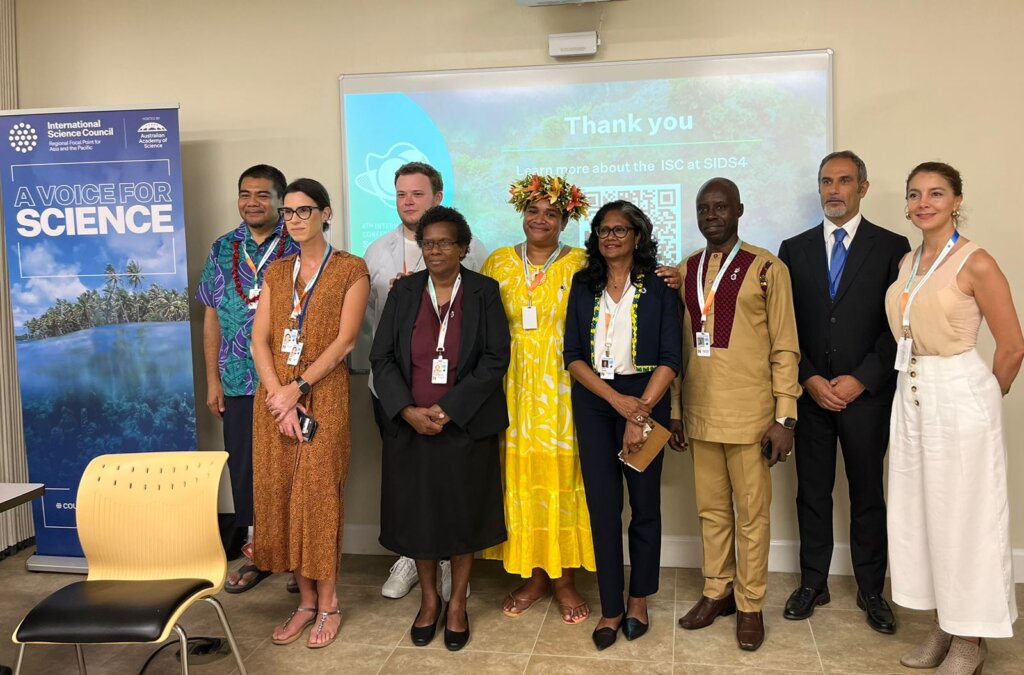
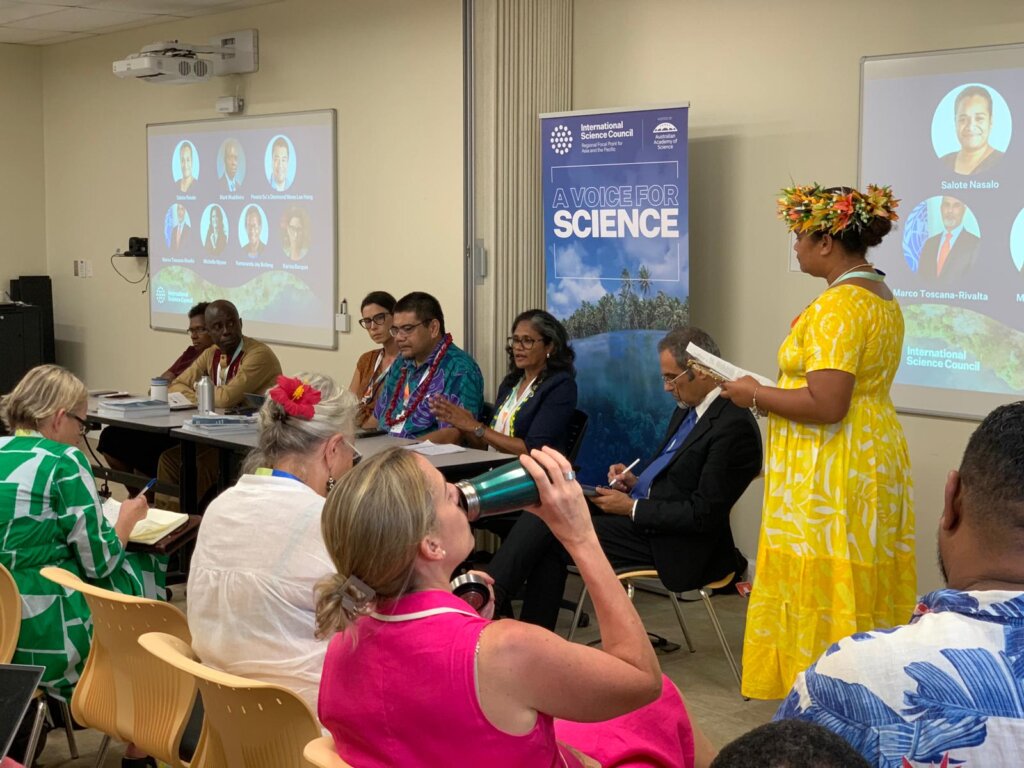
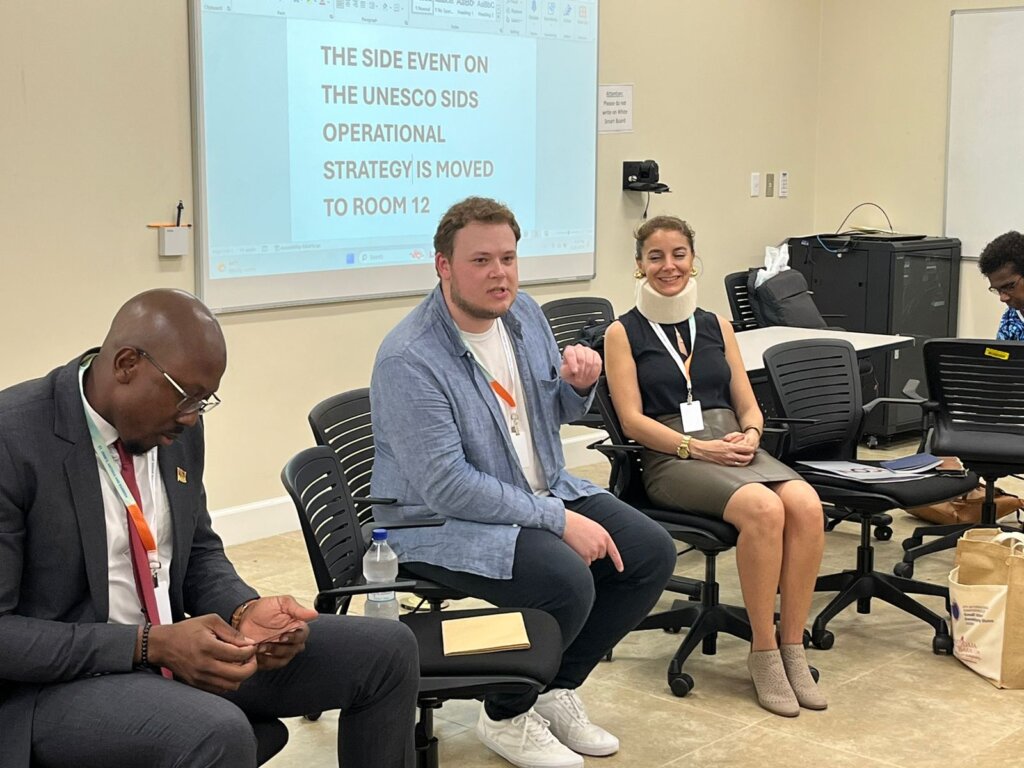
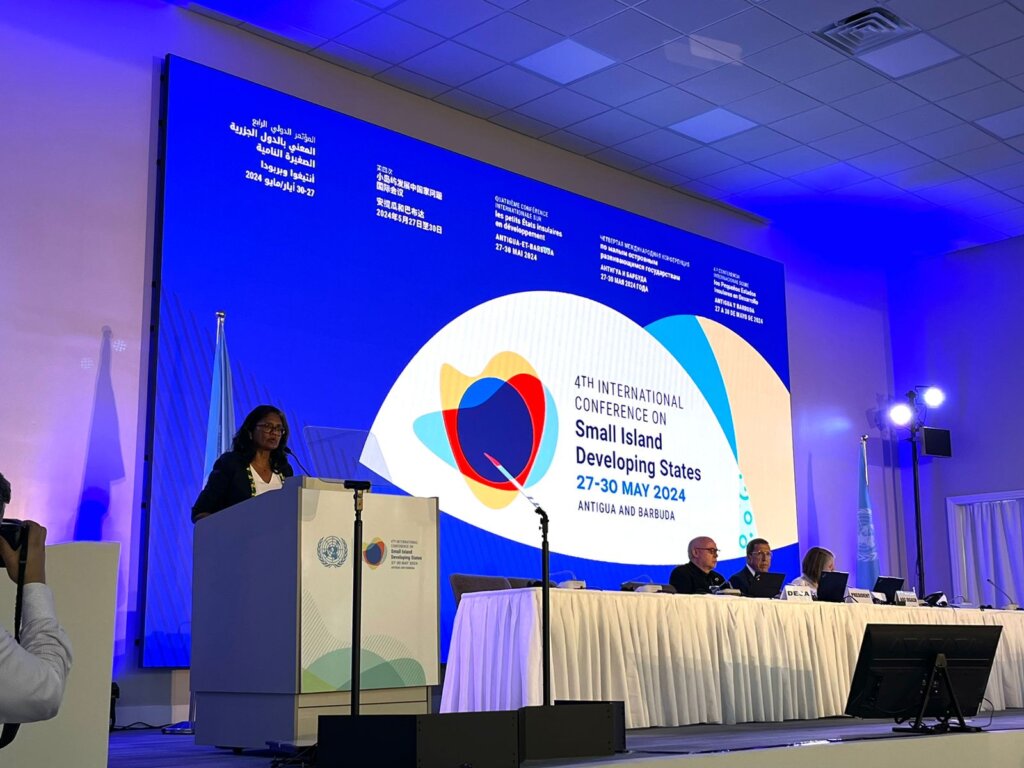
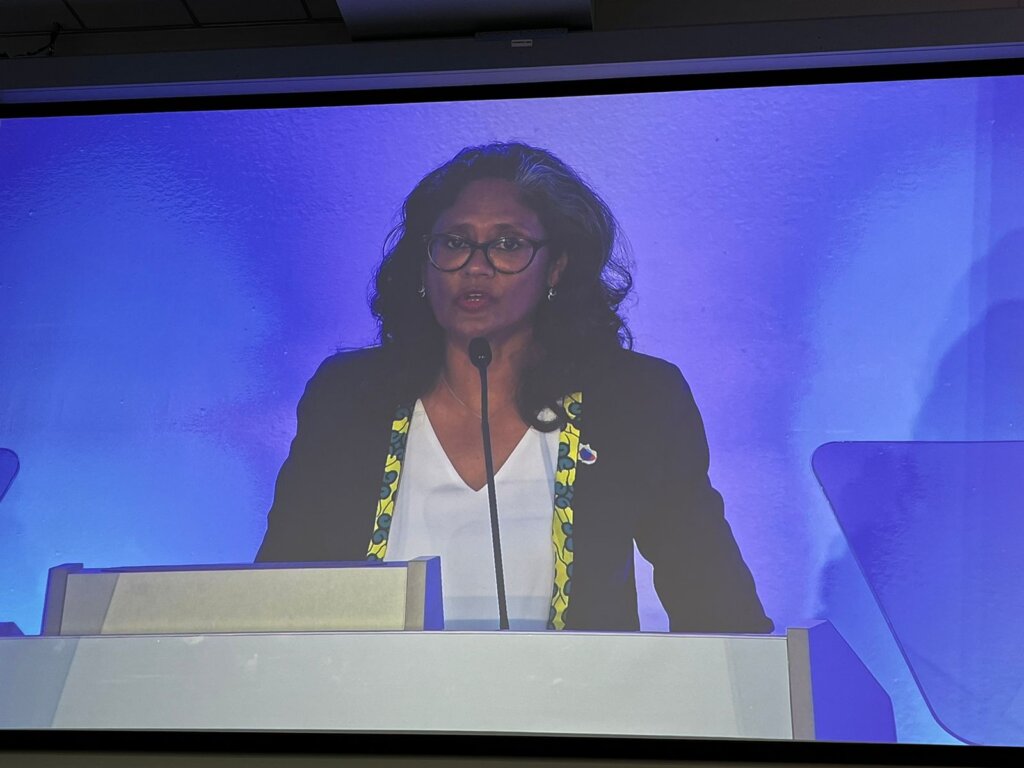
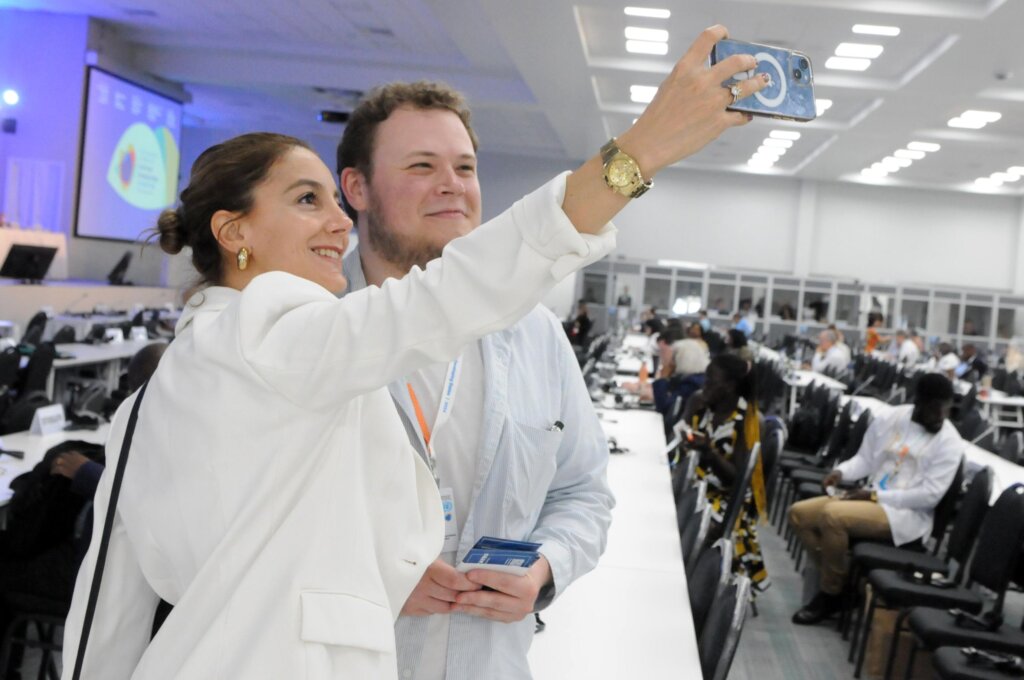
The ISC also addressed Member States and other stakeholders in a plenary session statement at SIDS4 on the importance of leveraging digital opportunities in SIDS to effectively manage climate impacts and enhance decision-making processes, underlining how strong scientific institutions and high-quality data are crucial towards these efforts.
“Scientists require good data quality, which lies at the centre of the science-policy-action interface.”, stated Michelle Mycoo, member of the ISC SIDS Liaison Committee. “Therefore, both interdisciplinary and transdisciplinary inputs are essential to identifying effective solutions to challenges faced by SIDS. This means combining insights from natural sciences, social sciences, humanities, and engineering with indigenous knowledge, local knowledge, private sector, civil society and practitioner knowledge.”
In the wake of the SIDS4 conference, and particularly in preparation for the upcoming UN Ocean Conference in 2025, the International Science Council remains committed to draw on the scientific community in SIDS with the support of the SIDS Liaison Committee and Regional Focal Points, to provide evidence-based, politically independent, and actionable scientific guidance to decision-makers and will continue to emphasize the leadership role that SIDS countries play in global environmental governance and sustainable development and ensure that research on and from SIDS is brought to the attention of global fora.
The International Science Council at the SIDS4 Conference
Discover how the ISC worked to mobilize the scientific community in SIDS and ensure that research on and from the SIDS was brought to the attention of global policy-makers at SIDS4. The Council also emphasized the importance of science and technology for the implementation of the 2030 Agenda and the SDGs in these countries, and the leadership role that SIDS countries play in global environmental governance and sustainable development.
Scientific Committee on Oceanic Research (SCOR)
SCOR activities focus on promoting international cooperation in planning and conducting oceanographic research, and solving methodological and conceptual problems that hinder research, covering all areas of ocean science.
Global Ocean Observing System (GOOS)
The GOOS is a collaborative system of ocean observations, encompassing in situ networks, satellite systems, governments, UN agencies and individual scientists with a vision for a GOOS that delivers the information needed for sustainable development, safety and well-being.